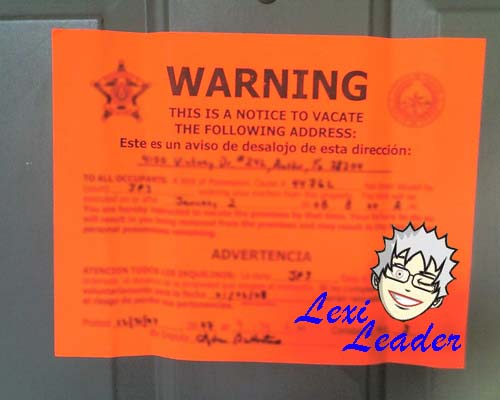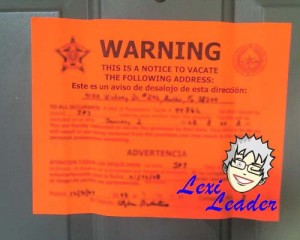Getting Rid of the Joneses

 How do good neighborhoods expel bad neighbors?
How do good neighborhoods expel bad neighbors?
They go after absentee landlords.
Good neighbors and community law enforcers across the nation agree that houses known for drug dealing, weaponry and gang behavior usually are owned by absentee landlords.
Three types of laws are cropping up across the country to give communities the power and the money needed to eradicate law-breaking tenants. The behavior, in addition to being dangerous to the majority of the neighbors and illegal, drives property values into the ground.
The laws hold landlords responsible for the condition and behavior of tenants.
Nuisance abatement laws can be far reaching. Law enforcers describe them as used in extreme behavior situations such as drug dealing, prostitution, weapons dealing and gang related crimes. When convictions result owners who do not remove the problem can lose their property.
Landlord reactions to nuisance laws include tales of narrow interpretations and expensive demands brought on by spurious neighbor complaints.
Rental registry laws are less punitive. They legislate a registration requirement on property owners who do not live near the community where the rental property is located. The fee in a Milwaukee, Wis. community is $30 the first year and set to reduce to $10 by year three. The up front financing established the initial data base. The money otherwise is used to underwrite extra law enforcement and health and safety monitoring of law-breaking tenants of absentee landlords.
The third type is called the “Animal House” laws which demand compensation from the property owner for the cost of excessive police calls to houses repeatedly cited for indecent exposure, disorderly, tumultuous or riotous conduct.
All communities agree the strong and persistence presences of law enforcement in these neighborhoods, including sanitation and all utility regulators, reduces crime and can force this conduct out of a targeted neighborhood.
The process, however, is costly in personnel and time consuming. All of the laws primarily attack the problem from a financial perspective, seeking to cover the jurisdiction’s costs in eradicating the bad neighbors. Some go so far that a landlord could be forced to forfeit the property.
Neighborhoods looking for immediate help are employing these solutions. But they acknowledge, their success has not stopped the criminal behavior problem. That has most likely simply moved to a different neighborhood.
Stories: